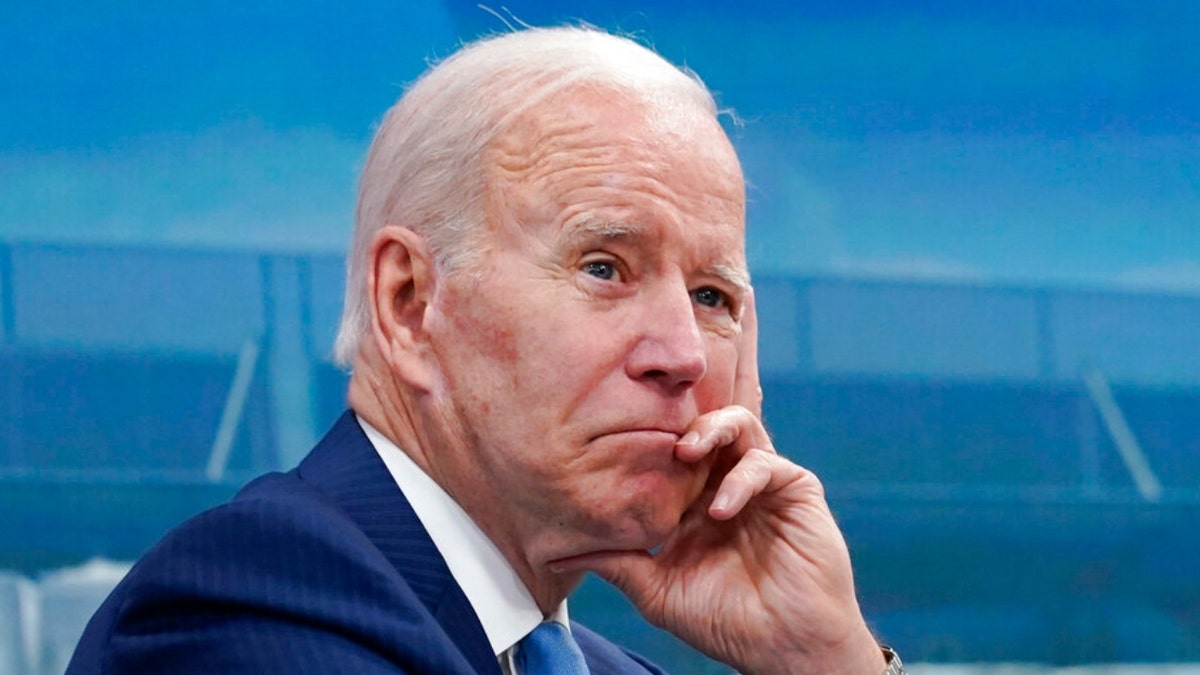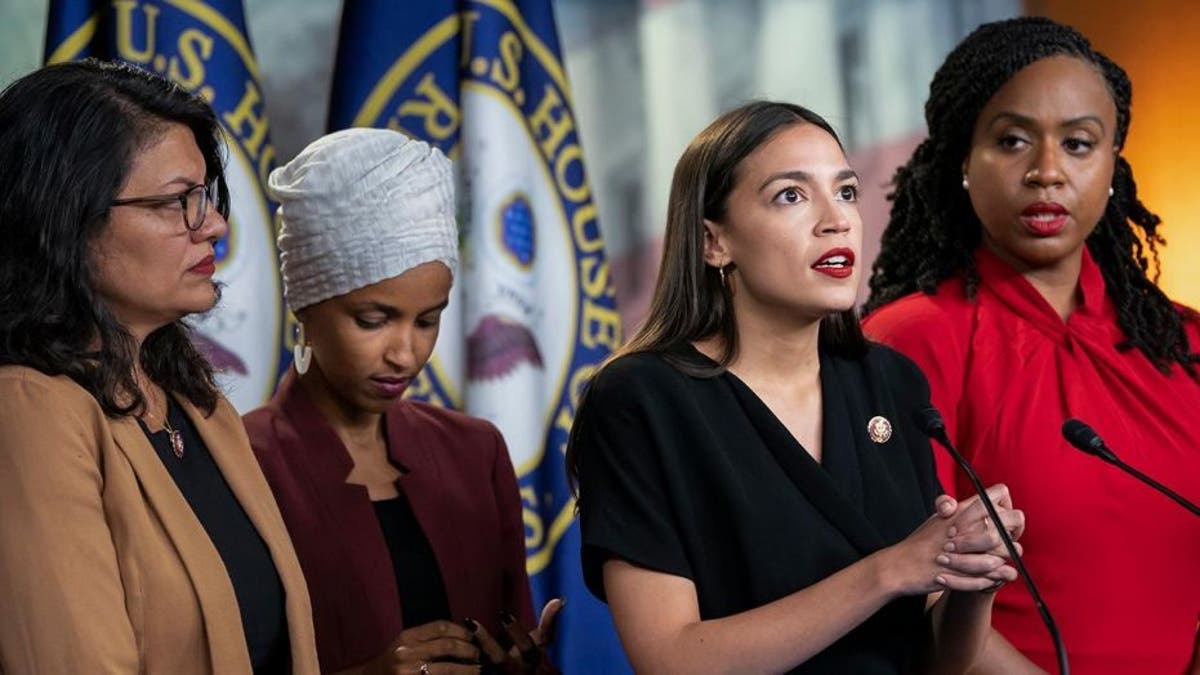Biden defends trip to Saudi Arabia
Fox News correspondent Gillian Turner has the latest on President Joe Biden's op-ed defending his trip to Saudi Arabia on 'Special Report.'
JERUSALEM, Israel – President Joe Biden will make his first visit to the Middle East this week as commander in chief, arriving in Israel Wednesday to kick off a four-day tour that includes meetings with the country’s new Prime Minister Yair Lapid and other top leaders, as well as stops in the West Bank before taking the first direct flight from Israel to Jeddah in Saudi Arabia.
With soaring oil prices, brought on in part by Russia’s war in Ukraine, and as tensions continue to rise in the region over Iran’s march toward a nuclear bomb and a possible return to the now-defunct nuclear agreement, the main agenda of the president’s visit is clear. Yet as his popularity at home continues to fall, Israelis appear uncertain of his support for America's closest ally in the region.
A poll published Monday by the Israel Democracy Institute found that more than half of Israelis, 54%, do not trust the Biden administration to take Israel’s overall interests into account and a larger majority (75%) do not trust the Biden administration to consider Israel’s interests during its dealings with Iran on the nuclear issue.
Additionally, a Pew survey also released on Monday found that while 60% of Israelis have confidence in Biden to do the right thing regarding world affairs, it is down from 71% who said the same of President Donald Trump in 2019. Still, more than half of those questioned (89%) said they believe the current bilateral relations are in good shape. (The Pew survey was conducted in May 2022.)

President Biden will meet with Israeli and Palestinian leaders during his trip. In Saudi Arabia he will meet with Crown Prince Mohammed bin Salman. (AP Photo/Susan Walsh)
Professor Jonathan Rynhold, head of the political studies department at Bar Ilan University near Tel Aviv, told Fox News Digital that while most Israelis know of Biden’s long history of friendship with and support for Israel, they are also aware of animosity toward Israel by members of his Democratic Party.
"Israelis do not know Biden that well and large parts of the public think the Democrats are the Squad," said Rynhold, referring to the group of Democratic members of the House of Representatives who have been extremely vocal in their criticisms of Israel and especially its treatment of the Palestinians.
ANTISEMITIC INCIDENTS SPIKED DURING SQUAD'S ANTI-ISRAEL RHETORIC, BLUE STATES AT TOP OF LIST
However, he added, most Israelis are excited about Biden’s visit "because he is the president of the United States, and the United States is Israel’s best friend."
Following Trump’s success at normalizing ties between Israel and four Arab countries, known as the Abraham Accords, it is hoped that Biden, who has already undone some of Trump’s policies in the region, will keep building and strengthening the relations.

According to one Israeli commentator, many Israelis view the Democrat Party through the lens of the Squad's anti-Israel rhetoric.
Over the past year, the administration has taken steps to reverse some of Trump’s policies toward the Palestinians. Last year, Secretary of State Antony Blinken announced the U.S. would resume $150 million in funding for UNRWA, the controversial United Nations agency that supports and advocates for Palestinian refugees; restore aid for Palestinian welfare projects in Jerusalem, the West Bank and Gaza; and rejuvenate the role of its consulate in Jerusalem, which traditionally interfaced with the Palestinian Authority, but was shuttered by Trump.
BIDEN ADMINISTRATION OVERRULES TRUMP POLICY ON PALESTINIANS
While Palestinians felt increasingly alienated by Trump, the former president was regaled in Israel as a friendly and dependable leader for taking measures such as implementing a 1995 law to transfer the U.S. Embassy from Tel Aviv to Jerusalem, recognizing Israeli sovereignty in Jerusalem and on the Golan Heights, and unilaterally withdrawing from the nuclear deal with Iran.
"Trump was the gift-giving president," said Tal Schneider, a veteran Israeli journalist and diplomatic correspondent for the Times of Israel. "Biden is not a gift-giving president, but when Israelis look at this administration the most important thing is not the gifts, but whether it can continue with the Abraham Accords."
On Friday, the president will tour a Palestinian hospital in East Jerusalem, meet with civil society activists and travel to Bethlehem for meetings with Palestinian Authority President Mahmoud Abbas before heading to Saudi Arabia.
"The Palestinian issue will be perfunctory, it is the issue of Iran that will loom large in the president’s discussions with the Israelis and Saudis," said Mark Dubowitz, CEO of the Washington, D.C.-based Foundation for Defense of Democracies (FDD), adding that the relationship between the Biden administration and Saudi Arabia will also top the agenda.
During his election campaign, Biden stated that among his foreign policy goals was to make the Saudis "pay the price" for the brutal assassination of dissident Jamal Khashoggi, a U.S. resident and columnist for the Washington Post. Immediately following his inauguration, the administration released a CIA assessment claiming that Crown Prince Bin Salman had directly ordered Khashoggi’s murder.
NO MORE ‘PARIAH’ STATE AS BIDEN SEEKS HELP FROM THE SAUDIS AS GAS PRICES SKYROCKET
Tensions between the U.S. and the House of Saud over the past year and a half are, in part, the reason why attempts to bring Saudi Arabia into the Abraham Accords with Israel, the United Arab Emirates, Bahrain, Sudan and Morocco have stalled, even though there are some signs that the largest country in the Middle East has softened its stance toward the Jewish state.
Now, as Biden heads to the country seeking alternatives to a global reliance on fossil fuels from Moscow in the hopes it will reduce gas prices and stabilize world markets, some analysts believe a renewed U.S.-Saudi relationship could create leverage for opening ties with Israel.

Saudi Crown Prince Mohammed bin Salman will meet President Biden later this week. The U.S-Saudi relationship, experts say, is in need of repair. (AP)
"I don’t think the Biden administration needs to pressure the Saudis to normalize with the Israelis, the biggest obstacle to Israel-Saudi ties is Washington," said the FDD's Dubowitz. "It is the U.S.-Saudi relationship that is in need of repair and [Crown Prince] Bin Salman will not fully normalize with Israel until that relationship is in a much healthier state."
Dan Shapiro, a former U.S. ambassador to Israel during the Obama administration, told Fox News Digital that the aim of Biden’s visit was to help create and sustain partnerships among Middle East countries that share the same interests as the U.S., while at the same time allowing a more hands-off approach in an unstable region.
CLICK HERE TO GET THE FOX NEWS APP
"The Abraham Accords and Israel’s addition to CENTCOM are opportunities that Biden can advance on this trip," said Shapiro, referring to the normalization agreements and to Israel’s recent inclusion in the U.S. Central Command (CENTCOM), which works with predominantly Arab and Muslim countries in the Middle East and Central Asia.
"It creates the opportunity for the emergence of a cohesive coalition of countries aligned with the U.S. and is a recipe for a more sustainable U.S. presence in the region," said Shapiro, a distinguished fellow in the Atlantic Council’s Middle East program.
During his two days in Israel, Biden will meet with Lapid, who became the country’s caretaker prime minister last week ahead of a general election scheduled for November, President Isaac Herzog, and opposition leader and former Prime Minister Benjamin Netanyahu. On Friday, he will meet with Abbas in Bethlehem.












































